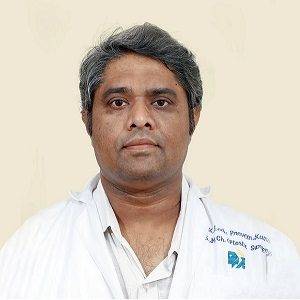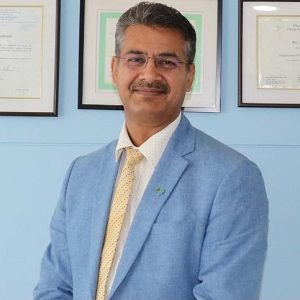Best Doctors in India for Rhinoplasty
- Plastic Surgeon and Cosmetic Surgeon, Chennai, India
- Over 22 years’ experience
- Apollo Hospitals Greams Road
Profile Highlights:
- Dr. Leela Praveen Kumar is one of the top Plastic Surgeons in Chennai with more than 22 years of dedicated experience.
- The doctor is frequently visited by the patients for Breast implants, Vaser Liposuction, rhinoplasty, facelift, Breast Reduction, Bariatric Surgery, Microsurgery, Body contouring, Hand surgery, and Onco Reconstruction.
- Dr. Leela Praveen Kumar also manages a non-Surgical fat reduction procedure, known as Cryolipolysis.
- Plastic Surgeon and Cosmetic Surgeon, Chennai, India
- Over 40 years’ experience
- Apollo Hospitals Greams Road
Profile Highlights:
- Dr. Sundararajan M S is one of the best Plastic Surgeons in India, having practiced for more than 40 years.
- The doctor offers lipo filling, body contouring, non-Surgical facelift, tummy tuck, implants, etc.
- Dr. Sundarajan bagged the Best paper award in 2008 & 2013 and the other Gold Medal for his contribution to the field.
- Plastic, Aesthetic and Reconstructive Surgeon, Gurugram, India
- 25 + years’ experience
- Medanta-The Medicity, Gurgaon
Profile Highlights:
- Dr. Aditya Aggarwal is a distinguished plastic surgeon with a career spanning over 25 years, currently serving as the Vice Chairman of the Department of Plastic, Aesthetic, and Reconstructive Surgery at Medanta The Medicity.
- Dr. Aggarwal’s expertise in cosmetic and reconstructive surgery has earned him both national and international acclaim.
- Dr. Aggarwal’s medical journey began with training at the prestigious IMS BHU Varanasi and KGMC Lucknow (now KGMU), followed by advanced fellowships in Taiwan, Japan, the United Kingdom, and Germany.
Best Hospitals in India for Rhinoplasty
Hospital Highlights:
- Apollo Hospitals is a private healthcare group in India, with its headquarters based in Chennai. Established in 1983 by Dr. Prathap C. Reddy, the group offers a wide range of medical treatments and services across various specialties.
- It is renowned for emphasizing innovation and utilizing cutting-edge medical technologies into patient treatment.
- Known as India’s first corporate hospital, Apollo Hospitals is often credited for pioneering the private healthcare revolution in the country.
- With clinics and hospitals located all throughout India, Apollo Hospitals is a nationwide healthcare organization. Its presence can also be found in foreign countries.
- Preventive health examinations, medical and surgical treatment, and diagnostic centres are just a few of the services that the Apollo group provides.
- The group has several centres of expertise, including Cardiac Sciences, Neurosciences, Orthopedics, Emergency Care, Cancer Care, and Organ Transplantation.
- City: Chennai, India
Hospital Highlights:
- RIMC is a multi-specialty hospital in a sprawling area of 36 acres located in Chromepet, Chennai, Tamil Nadu, India.
- The facility has 450 beds including 130 critical care beds, 9 operating rooms, modern reference laboratories and radiology services, and is conveniently located near road, rail and air transportation.
- RIMC is led and managed by world-renowned physicians committed to healthcare.
- RIMC offers the broadest range of clinical care, education, and research. The hospital offers state-of-the-art technology and modern treatment facilities designed to provide health care at an affordable cost.
- Rela Institute is driven by patient needs, comfort and confidence.
- City: New Delhi, India
Hospital Highlights:
- Fortis Hospital in Shalimar Bagh is a multi-super specialty hospital that strives to provide world-class patient care by leaving no stone unturned.
- Fortis, Shalimar Bagh, with 262 beds and a 7.34-acre footprint, provides the best level of medical care through its team of doctors, nurses, technicians, and management professionals.
- City: Bengaluru, India
Hospital Highlights:
- Established in 2007, the Apollo Hospitals Bangalore is a 300-bed multispecialty hospital situated in Bannerghatta Road, Bangalore.
- Equipped with the state-of-the-art technology, it is a leading hospital dedicated to providing healthcare needs to patients with compassion and expertise.
- It is the first hospital to have completed the highest number of Robot Assisted Heart Surgeries in India.
- Over the years, it has successfully conducted some of the rarest medical procedures such as spinal angiolipoma excision, autologous chondrocyte implantations, and tibial tuberosity shift with MPSL reconstruction.
- The Apollo Hospitals Bangalore has the reputation of performing the greatest series of airway stents in the country.
- Additionally, the hospital is known for providing comprehensive treatment in specialties such as gastroenterology, urology, gynecology, oncology, colorectal surgery, etc.
- The “The Minimal Access Surgery Centre” (MASC), one of Apollo Hospitals, Bangalore’s premier Centres of Excellence, is devoted to the use of minimally invasive surgical procedures.
- In 2013, THE WEEK-A C Nielsen, Best Hospital Survey ranked Apollo Hospitals Bangalore as the 2nd best multi-speciality hospital in Bangalore.
- City: Mumbai, India
Hospital Highlights:
- Gleneagles Global Hospital The 450-bed facility comprises of 17-stories, housing state-of-the-art infrastructure, and advanced medical care facilities.
- The hospital offers end-to-end clinical, surgical, and diagnostic services. It is equipped with a team of eminent medical professionals aided by qualified nurses and medical staff
- The Hospital offers advanced Endoscopic procedures, Hepatobiliary and Liver Surgeries, Surgical and Medical Gastroenterology, Bariatric Surgery, and Robotic surgery.
- The hospital is a center of excellence for Orthopedics, Joint Replacement, Knee Replacement, and Hip Replacement surgery.
- City: Hyderabad, India
Hospital Highlights:
- CARE Hospitals were established in the year 2000, by CARE Group.
- The multispecialty hospital has 435 beds, including 120 critical care beds, with an annual inflow of 180000 outpatients and 16,000 in-patients.
- The hospital provides specialty medical services in Cardiology, Cardiothoracic Surgery, Pediatric Cardiology, Pediatric Cardiothoracic Surgery, Neurology, Neurosurgery, Nephrology, and Urology.
- The hospital has the first dual source, 128 slice CT scanner (for high precision cardiac imaging) – the first of its kind in south India.
- The hospital offers a wide range of accommodation facilities for the convenience of its varied patient base, ranging from general wards to super deluxe rooms.
- City: Mumbai, India
Hospital Highlights:
- Fortis Hospital in Mulund is a 315-bed multi-speciality tertiary care hospital with five JCI accreditations that offers a wide variety of diagnostic and treatment services. The Fortis Hospital in Mulund delivers patient-centred treatment with cutting-edge technology, highly skilled and experienced surgeons, and paramedical staff.
- This institution houses Maharashtra’s largest multi-organ transplant centre. It is also the first heart transplant centre in western India to conduct 100 or more consecutive heart transplants in under four years. It is the only hospital in the city to have multi-organ transplants and has handled the youngest patient for angioplasty. Fortis Hospital Mulund now boasts the first advanced surgical robot in central Mumbai.
- Cardiology and heart surgery, urology, nephrology, neurosciences, orthopaedics, digestive care, emergency and critical care, and maternity care are among the services provided by the hospital.
- City: New Delhi, India
Hospital Highlights:
- Manipal Hospitals, Dwarka, is a super-specialty hospital in Dwarka, New Delhi, which is a part of Manipal Hospitals Group.
- The hospital aims to provide the best treatment on par with international standards at a fraction of the cost.
- Equipped with 380 beds, the hospital is also one of the new age hospitals which are equipped fully with state-of-the-art infrastructure, cutting-edge technology as well as the latest and advanced clinical practices. The hospital also has 13 modular Operation theatres with 118 beds which are solely meant for critical care.
- The hospital comprises internationally acclaimed doctors and highly professional and experienced hospital and medical staff who are able to provide preventive, therapeutic, and diagnostic services all under one roof.
- City: Chennai, India
Hospital Highlights:
- Located in Chennai, India, MGM Healthcare is a top multispecialty hospital that provides all medical services under one roof.
- Since its founding in 2019, MGM Healthcare has quickly become a leading national referral centre, creating several innovative flagship initiatives.
- MGM Healthcare combines next-generation medical and digital technologies to provide better patient results.
- With 12 centres of excellence, more than 400 inpatient beds, 100 intensive care unit beds, and 24/7 emergency care, MGM Healthcare leaves no chance in redefining the patient experience in Chennai.
- MGM Healthcare boasts 250+ expert doctors across 30+ departments, including Cardiology, Pulmonology, Neurology, Obstetrics & Gynaecology, and more.
- They house 12 specialized Centres of Excellence, including Neurosciences, Orthopaedics, and Multi-Organ Transplantation.
- Their team of doctors, nurses, and paramedics works together to give every patient individualized treatment.
Hospital Highlights:
- Lilavati Hospital & Research Centre is India’s premier multi-speciality tertiary care hospital and has been recognised as a global medical excellence centre.
- Lilavati Hospital & Research Centre has built an unrivalled level of trust with its patients over the years, thanks to a solid foundation that comprises cutting-edge facilities, the best medical competence, research, education, and charity endeavours.
- The hospital is quite proud of the fact that it now serves patients from all kinds of backgrounds, not just from the United States but from all around the world.
- The hospital has a total of 323 beds, one of the largest Intensive Care Units (ICUs), 12 Operation Theatres with modern amenities, over 300 consultants, and almost 1,800 personnel.
Rhinoplasty
Rhinoplasty also termed as a nose job, is a surgery that is performed to change the shape of the nose. It can be performed to change the appearance of the nose, to improve breathing or both. The bone is the upper portion of the structure of the bone, while the lower part is cartilage, skin or all three. Your surgeon considers your other facial features, including the skin on your nose while rhinoplasty is planned. Once you are considered as a candidate for the surgery, a customized plan will be developed for you by your surgeon.
Preparation
First, you need to meet with your surgeon and discuss whether you are a proper candidate for this procedure. You need to discuss why you require the surgeon and what expectations you have from it.
Your medical history will be examined by your surgeon, after which he will ask you about any current medications you might be taking as well as medical conditions that you might be having. Your surgeon might recommend against taking it if you suffer from hemophilia, a condition that causes excessive bleeding.
A physical exam will be performed by your surgeon, after looking closely at the skin on the inside and outside of your nose in order to determine the kind of changes that can be made. Your surgeons can order blood tests as well as other lab tests. Some people also get a chin augmentation, a procedure which defines the chin better along with rhinoplasty. Your surgeon can suggest whether such additional surgery should be performed at the same time.
This consultation will also include photographing your nose from various angles. These shots will be used to assess the long-term results of your surgery and might be referred to during the surgery as well.
It is important that you avoid painkillers that contain ibuprofen or aspirin for two weeks after your surgery. This kind of medications can slow down the blood-clotting process and make you even bleed more. It is important that you let your surgeon know the kind of medications and supplements that you are taking so that they are able to advise you regarding whether you should continue them or not.
Also, make sure that you understand the costs of your surgery. If your rhinoplasty is due to cosmetic reasons, it is a lot less likely that insurance is going to cover it.
People who are smokers can have more difficulty healing from rhinoplasty, as cigarettes are known to slow the recovery process. Nicotine can constrict the blood vessels, which can result in less oxygen and blood getting to healing tissues. Therefore, it is quite important that you quit smoking before and after the surgery in order to help in the healing process.
Procedure
Depending on how complex your surgery is, your procedure will require either local anesthesia or general anesthesia. It’s best that you discuss it with your doctor, which is the most appropriate type of anesthesia for you.
Rhinoplasty can be done inside the nose or through a small external cut made at the base of your nose between the nostrils. The bone will be readjusted by your surgeon as well as the cartilage underneath your skin. For larger changes, the surgeon can use cartilage from your rib, implants as well as bone from another part of your body. Once these changes are made, your surgeon will place the skin and tissue of the nose back and stitch the incisions in your nose. Once the surgery is done, you will find yourself in a recovery room, where the staff will be monitoring you. You might be able to live the same day unless you have any other health issues.
Recovery
After the surgery, the surgeon might place a plastic or metal splint on your nose, which will help it retain its new shape while it heals. He might also place nasal packs or splints inside the nostrils in order to stabilize your septum, which is the part of your nose between the nostrils.
To reduce bleeding and swelling, it will be best for you to rest with your head elevated above your chest. If you find your nose swollen or packed with cotton, you might feel congested as well. People are generally required to leave splints and dressings in place for at least one week after surgery. You might also have absorbable stitches, which means they will dissolve and won’t require removal. If the stitches aren’t absorbable, you will need to see the doctor again a week in order to get stitches taken out.
Impaired judgment, memory lapses and slow reaction time are some common effects that can be caused by the medications which are used for surgery. If it is possible, try to have a relative or friend stay with you the first night after the surgery.
You might experience drainage and bleeding for a few days after the surgery. A drip pad, a piece of gauze taped below the nose, can help in absorbing blood and mucus. Your doctor will let you know how often you need to change your drip pad. If you get headaches, your face might feel puffy, due to which your doctor might prescribe pain medications.
You might need to avoid the following for some weeks after the surgery:
- Running and any such strenuous physical activities
- Blowing your nose
- Swimming
- Chewing excessively
- Laughing or smiling, or any facial expression that require too much movement in the face
- Resting your eyeglasses on your nose
- Pulling clothes over your head
- Vigorously brushing your teeth
You need to be careful about exposure to the sun as well as this could permanently lead to discoloring of the skin around the nose. Within a week you can return to your usual daily activities.
Rhinoplasty can affect the area around the eyes and you might experience temporary numbness, swelling or discoloration around your eyelids for a few weeks. Sometimes in rare cases, this might last up to six months and slight swelling can even persist longer. You can also choose to apply cold compressors or ice packs in order to decrease discoloration and swelling. The follow-up care after rhinoplasty is also very important. Make sure that you keep your appointments as well as follow the instructions provided by your doctor.
Risks
Like most major surgeries, rhinoplasty comes with risks such as bleeding, infection or adverse reaction due to the anesthesia.
There are also other possible risks which can come with rhinoplasty, which can include the following:
- Permanent numbness in and around the nose
- Difficulty breathing through the nose
- The possibility of having an uneven-looking nose
- Pain, discoloration or swelling which can be persistent
- A hole in the septum
- Scarring
- Requiring surgery again
Despite the risks involved, most of the time if your surgeon is experienced, you will end up with satisfactory results. The slight changes however aren’t enough in some cases and your surgeon might need to perform another surgery in order to make further changes. However, in such cases, you will need to wait for a minimum of one year for the next surgery, as during this time your nose can go through some changes.














